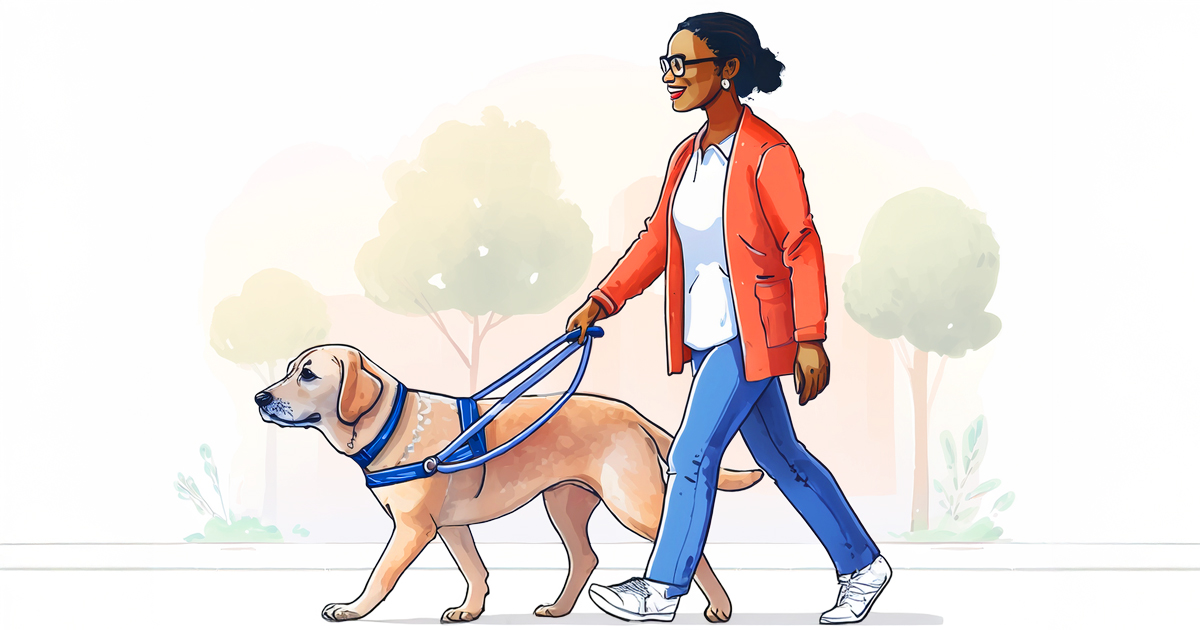Guide dogs win our hearts. Unfortunately, some myths about them can be confusing and even discourage a person from exploring whether a guide dog is right for them. So let’s clear up a few common misconceptions.
Myth 1: “The dog will know where I want to go.”
Reality: A guide dog doesn’t read maps or know your destination. That’s your role. You decide the route, and your dog helps you travel safely.
Myth 2: “I’ll just train my pet to be my guide dog.”
Reality: Guide dogs begin training from birth and spend years in structured programs. While your family pet can be a wonderful companion, they won’t have the specialized training to guide safely.
Jessica shares her experience raising a puppy for guide dog training in the Hadley Presents episode Raising a Future Guide Dog.
Myth 3: “Guide dogs are only for people who are totally blind.”
Reality: Many handlers have some usable vision. The dog handles the obstacles; you use the vision you might have to choose direction and destination.
Jeff Flodin and Ed McDaniel have traveled with guide dogs with some usable vision. They share their experiences in the Hadley Presents episode Guide Dogs and Vision Loss.
Myth 4: “I’m too old to get a guide dog.”
Reality: Age isn’t the deciding factor—activity level is. If you’re active (or ready to increase your stamina), a guide dog can be a partner at any stage of life.
Judge David Tatel shared in the Hadley Presents podcast episode Justice and Vision Loss: “We’ve been together for three years, and every day something happens that’s new and interesting in terms of what she’s able to do for me. . . . I didn’t get this dog until I was 77 years old.” He devotes the last chapter of his memoir Vision: A Memoir of Blindness and Justice to her.
Myth 5: “A guide dog will protect me from danger.”
Reality: While some dogs may be naturally protective, guide dogs are not trained for protection. Their job is mobility and safety in travel—not security.
The truth: It’s about partnership
Owning a guide dog is rewarding, and it’s also a commitment. You’re responsible for their well-being: food, vet visits, exercise, and love. In return, you gain a trusted partner who helps you move through the world with confidence.
More resources
Hadley’s free workshop Common Misconceptions About Guide Dogs explores common myths about guide dogs.
If you’re curious about whether a guide dog is right for you, the International Guide Dog Federation, the National Federation of the Blind, and Guide Dog Users, Inc. offer resources to get started.
Coping with vision loss
The emotional impact of owning a guide dog shines through in Hadley member stories, like Tamisue’s in the Insights & Sound Bites podcast episode “I’m not as scared” and the Leonettis’ in the Hadley Presents episode Impact of Vision Loss on a Marriage, Revisited.
Did you learn something new about guide dogs from this post? What else might you be wondering about regarding the guide dog experience?

0 Comments